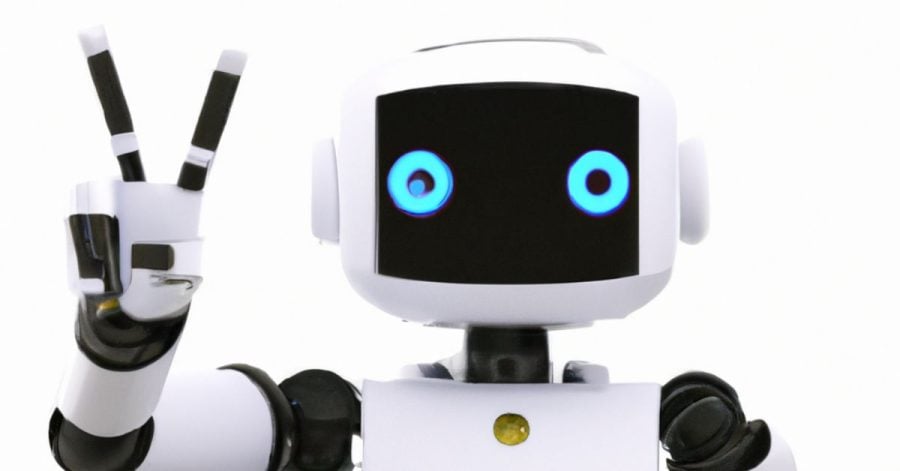Can we imagine a world where policymakers harness the power of AI and create policies for peace and stability in post-conflict societies? A project by Slovakian AI platform CulturePulse is working on making this a reality through AI modeling and the use of “digital twins” that replicate real-time societal dynamics.
The Balkans, in particular Bosnia and Herzegovina, was one of the use cases for this novel approach, with the goal of seeking to comprehend the conditions that either foster cooperation or exacerbate conflict in transitional societies.
The Bosnian conflict, which took place from 1992 to 1995, was a devastating ethnic and territorial war in Bosnia and Herzegovina, primarily involving Bosniaks, Croats, and Serbs. The conflict resulted in widespread atrocities, leading to the deaths of more than 100,000 people and the displacement of millions, finally ending with the signing of the Dayton Peace Agreement in 1995.
However, the consequences of the conflict continue to impact the region even today, as Bosnia and Herzegovina remains deeply divided along ethnic lines, with a complex political system that often leads to political gridlock.
While the platform and AI modeling that CulturePulse has created is not designed to replace traditional fieldwork or human research, the main purpose is to provide governments and policy experts with a tool to test potential policies and their real-world impacts.
“What we try and do is highlight the cultural and psychological predictors of conflict, and then apply this knowledge to analyzing global news streams and social media. This way, we can analyze data from the news in an area and see if things are “heating up” or “cooling down” and inform stakeholders and peacekeepers so that they can strategize appropriately,” Justin Lane, co-founder of Slovakian AI platform CulturePulse, tells The Recursive.
Furthermore, as he explains, AI has significantly enhanced intelligence gathering for peacekeeping, detecting ceasefire violations and troop movements through image-based AI and satellites. Additionally, organizations are utilizing extensive data and statistical techniques (considered a form of AI) to analyze historical conflicts.
The path to understanding cross-cultural forgiveness
In the past two decades, significant strides have been made in understanding forgiveness at interpersonal and collective levels. However, a comprehensive examination of cross-cultural and inter-religious variations in forgiveness remains a largely uncharted territory.
This gap in knowledge not only limits the advancement of forgiveness science, which has primarily focused on a Western Christian perspective but also hampers efforts in conflict resolution and peacebuilding. Recognizing this, CulturePulse designed the two-year project aimed at bridging this gap and providing practical resources to inform strategy and policymaking in post-conflict societies, using examples from Bosnia, Northern Ireland, and South Sudan.
Lane’s first major project aided the Syrian Refugee Crisis in the Greek island of Lesbos, focusing on integrating refugees into host communities by understanding moral differences and values.
“In Lesbos, we focused on how we can lessen the friction in areas like resettlement and integration. These are problems that typical analyses can’t really help with, so having psychologically realistic models of communities can help to capture the real human level of the problem, things like values, and emotions, that are often neglected by AI,” Lane tells The Recursive.
The key findings of the project were that one can help integrate refugees into new host communities by doing little things such as being aware of key moral differences and how values can often shape why people may or may not do something.
“The difficult thing that we found is that morality is so complex that there is no perfect answer. If you optimize for one thing, you always sacrifice something else in a way, so you can do good, and we can do better, but there is no perfect when trying to blend multiple cultures in a time of crisis,” Lane explains.
Another notable project involved studying social cohesion and democracy stability in Central and Eastern Europe using AI and conducted in collaboration with universities, governments, and NGOs. They also worked on deradicalization in social media, analyzing social networks and censorship mechanisms to promote social cohesion.
There were also instances when AI insights facilitated a delegation of youth leaders from conflict zones to learn from past experiences in Northern Ireland, highlighting the potential of this technology to contribute to peacebuilding efforts.
“We were able to fund (with our partners at Cambridge University) a delegation of youth leaders from Ukraine, Bosnia, Kosovo, Armenia, and Azerbaijan to study at Cambridge for three days with us and other experts in policy negotiation and then we took them to Belfast for three days where we gave them “on the ground” experiences with ex-combatants from the conflict in Northern Ireland. At one point, an older gentleman who was in the UVF (a Loyalist paramilitary in Northern Ireland) was telling their story and invited them to sign the peace wall in Belfast with him. It was a little thing, but it really had this personal impact on me that there is an ability where AI projects can give insights to people, and when we connect them with “on the ground” actions, they can help us to learn from the past when we’re in hard situations,” Lane tells The Recursive.
Navigating political nuances and AI ethics
However, the use of technology also brings a different set of challenges.
“There are political nuances, funding issues, AI ethics issues, and of course physical dangers of going to active conflict zones to create these systems and get the “on the ground” experience that is needed to do a good job. From the ethical standpoint, for example, we have to ensure that the systems we create aren’t used to make things work. AI is like a gun. In the hands of one person, it can save lives and ensure some safety, in the hands of another, it can be an atrocity,” Lane adds.
While AI can play a crucial role in monitoring and enforcing ceasefires and peace agreements by utilizing social listening and standard intelligence tools, the focus at present is shifting towards preventing conflicts altogether by helping stakeholders understand events and mitigate issues before a ceasefire is broken.
“We’re more interested in the question: can we help stakeholders understand what is happening and mitigate problems so there is no breaking of the ceasefire to begin with? While it’s important to track conflict while it is happening, when it happens, it’s a better–albeit more ambitious goal–to try and stop conflicts before they start,” Lane points out.
Next, CulturePulse aims to expand its impact in peacekeeping by developing interactive AI tools that can work more effectively when it comes to providing such insights.
“What we’ve found is that people are facing a similar lack of information around the world when they’re trying to understand conflict, and our AI is unique in its ability to provide those insights at scale. So we’re working to create a new AI tool that can work more interactively and intelligently with stakeholders like key NGOs, universities, and government ministries that can turn around scientific results in 18 hours rather than 18 months,” Lane concludes.








